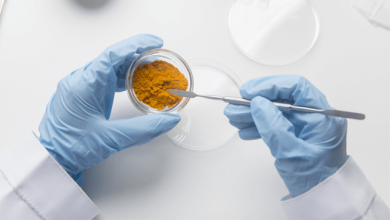Search results
Hidden in Heart Failure
Author(s):
Douglas Ewan Cannie
,
Mohammed Majid Akhtar
,
Perry Elliott
Added:
3 years ago
Article
Author(s):
Peter P Swoboda
,
Adam K McDiarmid
,
Stephen P Page
,
et al
Added:
3 years ago
Inherited cardiomyopathies are primary disorders of the heart muscle that have a genetic basis. On long-term follow-up they are associated with adverse outcomes, particularly sudden death, arrhythmia and heart failure.1 The diagnosis is made on the basis of clinical, cardiac imaging (primarily with transthoracic echocardiography) and genetic features,2 ideally by a tertiary inherited cardiac…
View more
Author(s):
George Thomas
,
Emmanuel L Bravo
Added:
3 years ago
Distinct hypertensive syndromes causing drug-resistant hypertension are increasingly being recognised. The ability to recognise these disorders has come as a result of a better understanding of their pathogenesis and the availability of sensitive and accurate diagnostic tools. The particular appeal of making the diagnosis centres around the potential curability of the hypertension, with…
View more
Author(s):
Kensuke Nishimiya
,
Jun Takahashi
,
Kazuma Oyama
,
et al
Added:
10 months ago
Targeting Two Sources of Cholesterol - An Advanced Treatment Approach to Lipid-lowering Management
Author(s):
Alberico L Catapano
Added:
3 years ago
Article
Neuroendocrine System Regulatory Mechanisms: Acute Coronary Syndrome and Stress Hyperglycaemia
Author(s):
Ricardo A Perez de la Hoz
,
Sandra Patricia Swieszkowski
,
Federico Matias Cintora
,
et al
Added:
3 years ago
Article
Author(s):
Alberto Lorenzatti
,
Maria Luz Servato
Added:
3 years ago
Coronary artery disease (CAD) is the leading cause of death in most countries. Compelling evidence from epidemiological, genetic and clinical studies as well as experiments in animal models has unquestionably established that elevated concentrations of cholesterol (mainly transported by LDL particles) promote atherosclerotic lesions.1 Although statin-based lipid-lowering therapies have been shown…
View more
Testosterone and the Heart
Author(s):
Michael G Kirby
,
Geoffrey Hackett
,
Sudarshan Ramachandran
Added:
3 years ago
Article
Author(s):
Aarti Thakkar
,
Anandita Agarwala
,
Erin D Michos
Added:
2 years ago
Curcumin in Lifestyle Diseases
Author(s):
Kana Shimizu
,
Masafumi Funamoto
,
Yoichi Sunagawa
,
et al
Added:
3 years ago
Article














 « First
« First